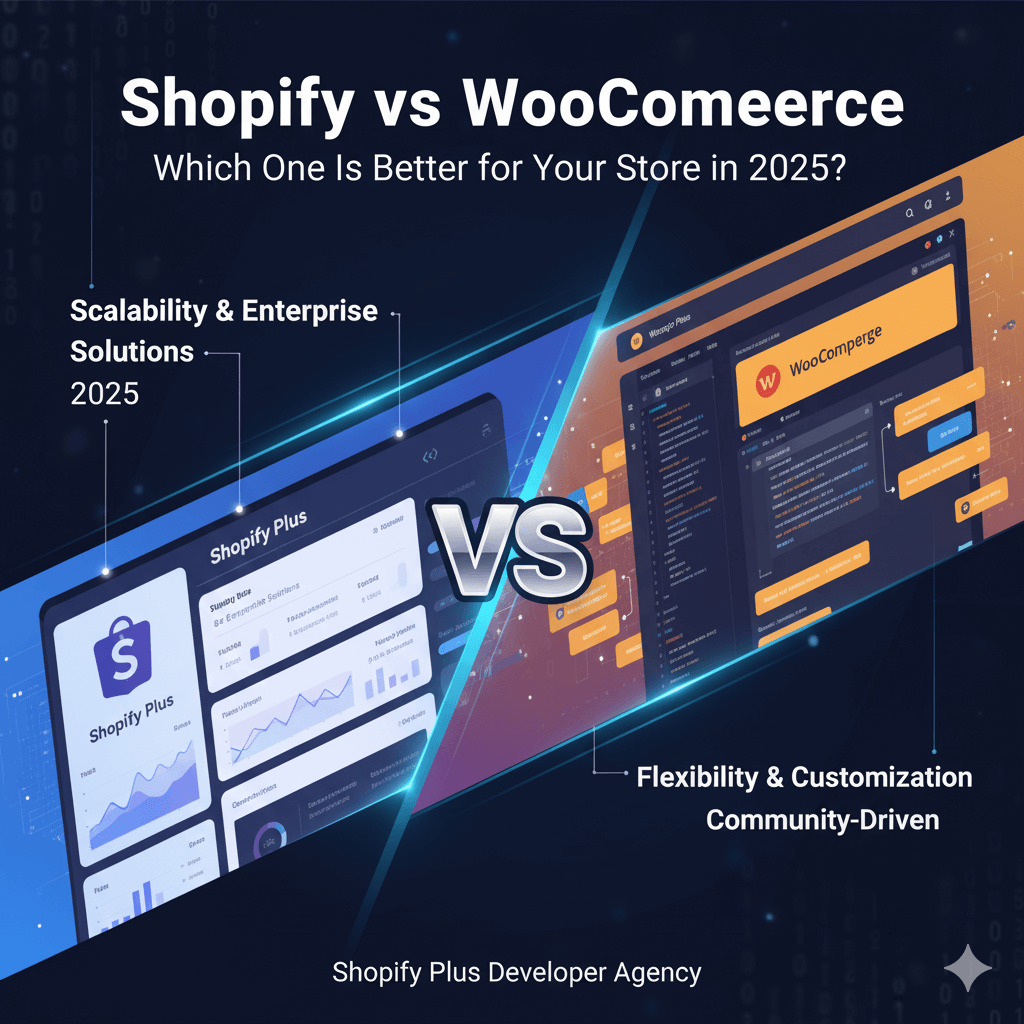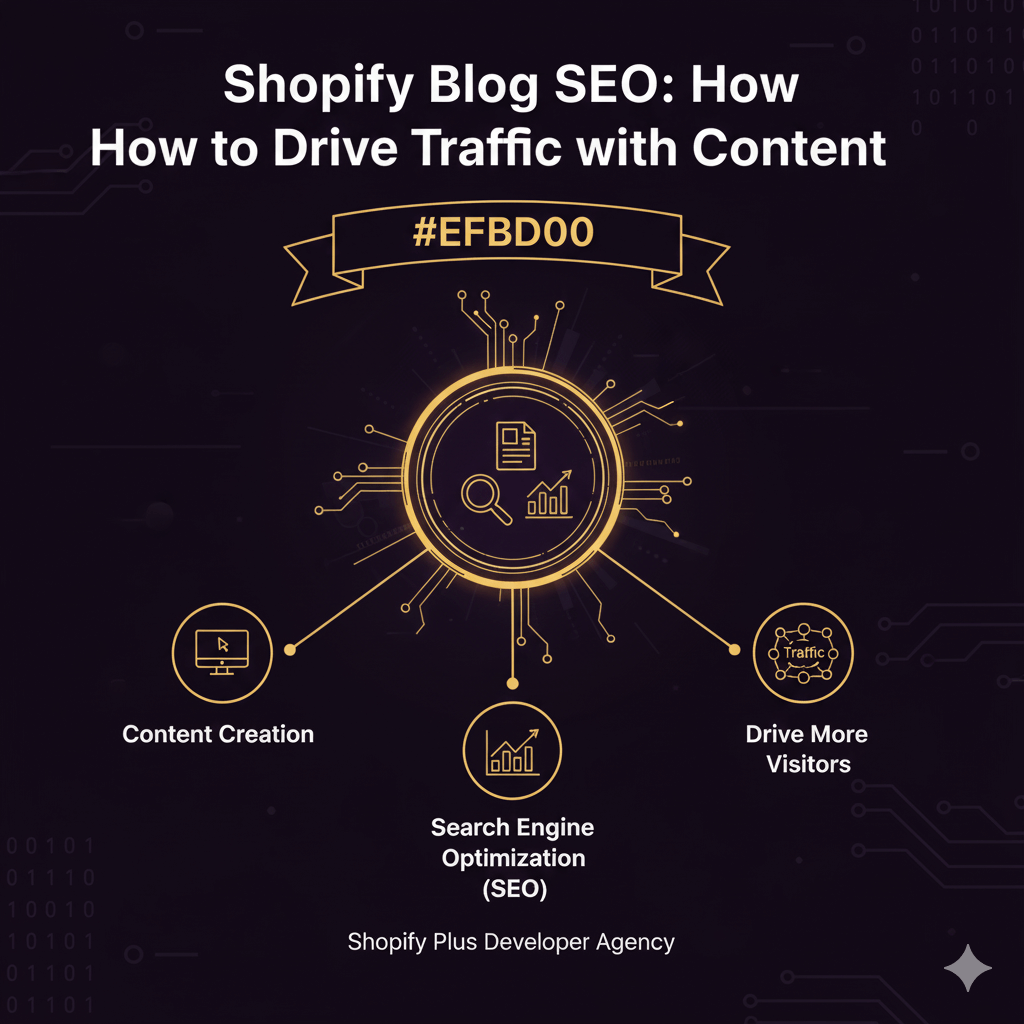Shopify vs WooCommerce: Which One Is Better for Your Store in 2025?
![]() Published: October 16, 2025
Published: October 16, 2025
![]() Reading Time: 6 min read
Reading Time: 6 min read
Want to stay in the loop?
Subscribe to receive updates, insights, and special offers straight to your inbox.
Choosing between Shopify and WooCommerce in 2025 isn’t just about features, it’s about who you are as a business owner. Both platforms have evolved massively, but their core philosophies remain the same: Shopify is simplicity and structure, while WooCommerce is flexibility and freedom. Having worked with both, I’ve seen firsthand how your decision can shape your eCommerce journey.
Shopify and WooCommerce at a Glance
What They Are and How They Differ
Shopify is an all-in-one hosted platform that takes care of everything, hosting, security, and maintenance, so you can focus purely on selling.
WooCommerce, on the other hand, is a plugin for WordPress that transforms your site into a fully customizable online store. It gives you near-complete control but expects you (or your developer) to handle the technical bits.
Who Each Platform Is Best For
If you’re the kind of person who wants to launch quickly and focus on products, Shopify will feel like a dream. But if you’re someone who loves tweaking designs, optimizing SEO, and owning every detail, WooCommerce will feel more like home.
Ease of Use: Setting Up Your Store
Shopify: Quick Setup, Zero Maintenance
When I first used Shopify, the simplicity was shocking, in a good way. The dashboard is clean, intuitive, and ready to go, you can set up a store in under an hour, no hosting headaches, no plugin conflicts... It’s a platform built for entrepreneurs who want to sell, not tinker.
WooCommerce: Flexibility Comes With Responsibility
WooCommerce gives you freedom, but that freedom has a learning curve, you’ll need to choose a host, manage updates, and keep an eye on site security. Once everything’s running, though, it feels incredibly empowering, eespecially if you want your store to evolve on your terms.
Pricing Comparison: What to Expect in 2025
Shopify Pricing Plans and Hidden Costs
Shopify’s pricing in 2025 starts around $39/month, with tiers up to $399+ for advanced features. Everything’s included ( hosting, SSL, and updates ) but extra apps and transaction fees can add up fast. Still, many see this as the price of peace of mind.
WooCommerce Costs: Hosting, Extensions, and Customization
WooCommerce itself is free, but you’ll pay for hosting ($10–$40/month), premium themes, and paid extensions. Over time, costs can equal or exceed Shopify, depending on how customized your site is. Yet, you get unmatched flexibility in exchange.
Which Is More Cost-Effective Long-Term?
If you prefer predictable, fixed costs, Shopify wins. If you’d rather control every expense and can handle a bit of setup, WooCommerce can be cheaper long-term.
Design and Customization
Themes, Plugins, and Creative Control
Shopify has over 150 themes (plus premium options), all optimized for performance. WooCommerce, being part of WordPress, gives you access to thousands of themes and plugins, nearly endless possibilities. I’ve found WooCommerce better for brands that want a unique identity; Shopify works best when speed and consistency matter more.
Balancing Design Freedom With Ease of Use
WooCommerce’s flexibility is both its power and its pitfall. You can design anything, but too much customization can slow down your site. Shopify restricts freedom a bit, but that’s what keeps things stable.
SEO, Performance, and Security
SEO Tools and Optimization
If SEO is your top priority, WooCommerce has the edge. Built on WordPress, it integrates seamlessly with tools like Yoast SEO and Rank Math, letting you control metadata and schema.
Shopify’s SEO tools have improved ( automatic sitemaps, clean URLs, and fast loading ) but are less customizable.
Site Speed and Hosting Impact
Shopify wins for speed consistency, you’re on their optimized servers. WooCommerce depends on your hosting choice; a good one (like SiteGround or Kinsta) keeps you fast, but a cheap one will slow you down.
Security and Maintenance Considerations
Shopify takes care of everything ( SSL, updates, and PCI compliance), WooCommerce leaves it up to you (or your host). I’ve had to manage plugin conflicts and SSL renewals on WooCommerce; it’s not hard, but it requires diligence.
eCommerce Features and Integrations
Payment Options, Apps, and POS Systems
Both platforms support hundreds of payment gateways. Shopify’s built-in POS system is a huge plus if you sell in person. WooCommerce integrates with everything (from Stripe to local gateways) but setup can take longer.
How Each Platform Supports Growth and Scalability
Shopify scales effortlessly, it’s built for growth. WooCommerce can scale too, but requires hosting optimization and caching setups. In 2025, Shopify’s new AI-based sales insights make scaling smarter, while WooCommerce relies on third-party plugins for similar features.
Support and Community
Shopify’s 24/7 Support and Reliability
Shopify offers live chat, phone, and email support around the clock, for store owners who value quick fixes, that’s priceless.
WooCommerce’s Open-Source Community Power
WooCommerce has no “official” support, but its global community of developers and users is huge. There’s always a forum or tutorial that answers your question, it’s just less direct.
So... Which One Wins in 2025?
When Shopify Makes More Sense
If you want a hassle-free, reliable store that “just works,” Shopify is unbeatable. You’ll trade some control for convenience and for many, that’s a great deal.
When WooCommerce Is the Smarter Choice
If you want ownership, flexibility, and deep SEO control, WooCommerce remains king. You’ll work harder to set it up, but the long-term payoff can be worth it.
It All Comes Down to Control vs Convenience
In my experience, it really does come down to what kind of person you are. Shopify is perfect for those who want to focus on selling and not servers. WooCommerce suits those who love to build and customize every corner of their site. Neither is objectively “better”, only better for you.
FAQs
Is Shopify or WooCommerce better for beginners?
Shopify's setup is faster, and support is built-in. WooCommerce requires more tech know-how.
Which is more affordable in 2025?
WooCommerce can be cheaper if you manage hosting smartly. Shopify’s fixed plans cost more but include everything.
Can I migrate from WooCommerce to Shopify easily?
Yes. Tools like LitExtension make migration straightforward.
Which platform is best for scalability?
Shopify is easier to scale fast; WooCommerce is more customizable for complex growth.
Ready to transform your store and see meaningful results in your metrics? Contact us today and let’s start building your success.



